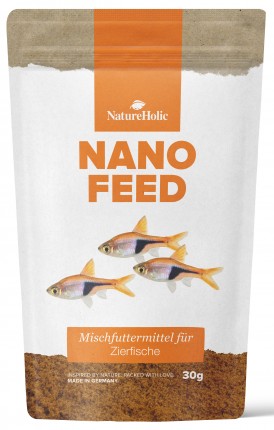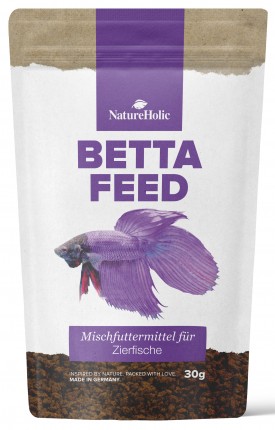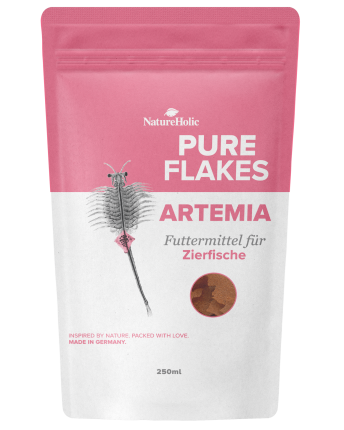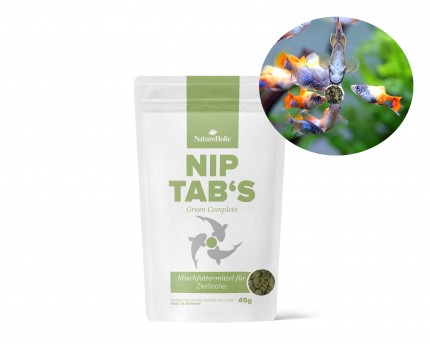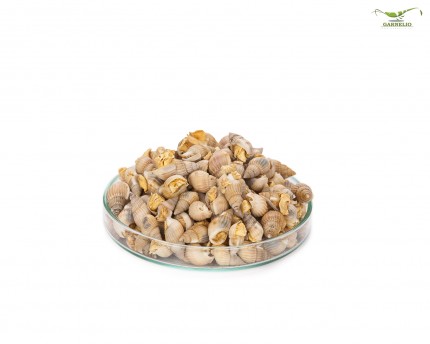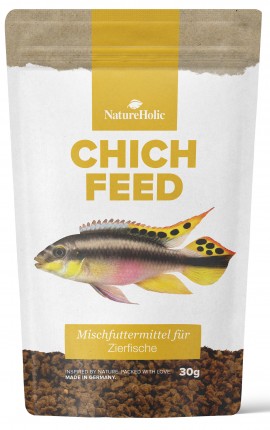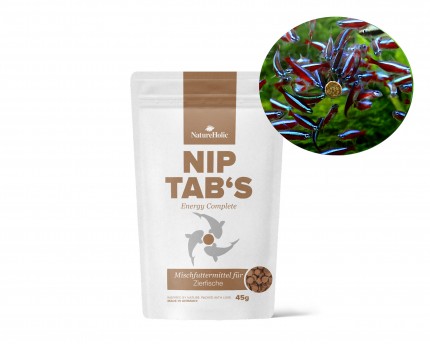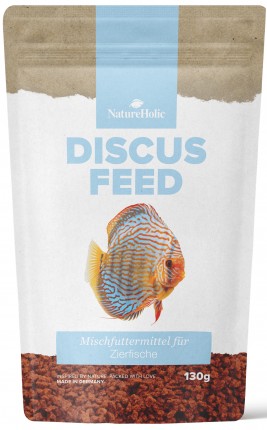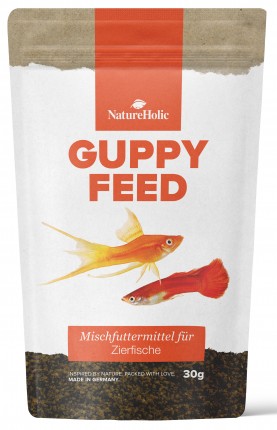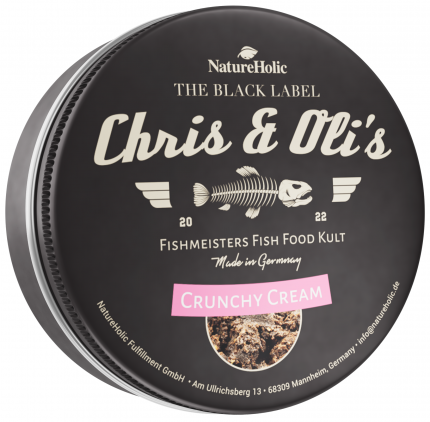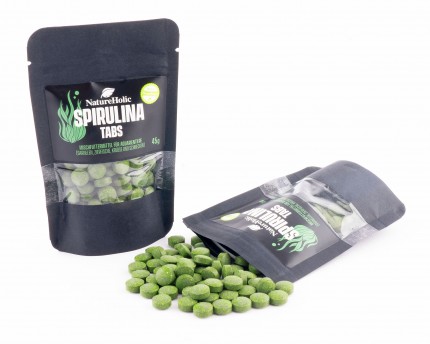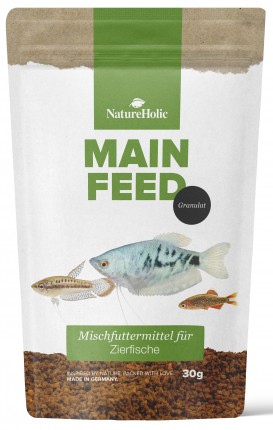Staple food for ornamental fish is the food for every day. A good staple food for ornamental fish contains all the nutrients, carbohydrates, protein and high-quality fats in the right mix, as well as all the micronutrients, minerals and vitamins that ornamental fish need in the aquarium.
When choosing the right staple food for your aquarium fish, you should first consider which aquarium areas your pets will be traveling in. Many livebearers such as Guppies, Endler Guppies or even Mollies and Platies prefer to eat from the water surface. You can recognize this preference by their overhead mouth, which is not exactly in the center of the body, but appears to be slightly displaced upward. In nature, Guppy, Platy and Co. eat approach food such as flying insects, pollen, leaves floating in the water, soft fruits that have fallen into the water, plants hanging into the water and so on. Since these livebearers, like most ornamental fish, are omnivores, they are well served by a balanced diet with both animal and plant components. Important for ornamental fish that eat from the water surface: The food should remain on the water surface as long as possible and not sink too quickly. Many granules and most flake foods are suitable for these fish.
Most of our popular aquarium fish such as tetras, danios, barbs and also some cichlids / cichlids and dwarf cichlids are omnivores. They prefer a balanced diet (tetras need a higher animal than plant content, with barbs it is the other way around). They prefer to stay in the middle to upper water layers and like to take granules and flake food here. For these fish, the food may sink a little faster than for distinctly surface fish.
Then there are the aufwuchsfresser: To this belong Harnischwelse / Saugwelse, which are quite predominantly as Bodenfische in the lower water layer on the way. They prefer to eat food that they can scrape off surfaces with their rasping mouths. Actually, loricariids eat mainly algae, but of course they do not sort out small crustaceans, worms etc. living in the algae, therefore special catfish food should always contain a small portion of animal food. Since Ancistrus, Otocinclus and Co. need a lot of fiber, it is advantageous if the main food for catfish contains a proportion of wood and foliage. Catfish are best served with fast sinking tabs on a predominantly vegetable basis.
Pure herbivores are rather rarely represented in the aquarium, but it can't hurt if guppies and platies have a vegetable day once in a while and are fed a vegetarian diet. Food on spirulina basis or pure green food is optimally suitable here.
For the pure carnivores like some cichlids / cichlids (like Frontosa, Nimbochromis, Lamprologus. Altolamprologus, Aulonocara and Placidochromis), predatory tetras, fighting fish / bettas, gouramis or predatory catfish, a special food for predatory fish is suitable. Their intestines can become gummed up if they eat too much vegetable food, and this will lead to illness and possibly an early death. Here you should make absolutely sure that the food contains only a really very low proportion of plants - just as much as the fish would ingest with the intestinal contents of their prey.

